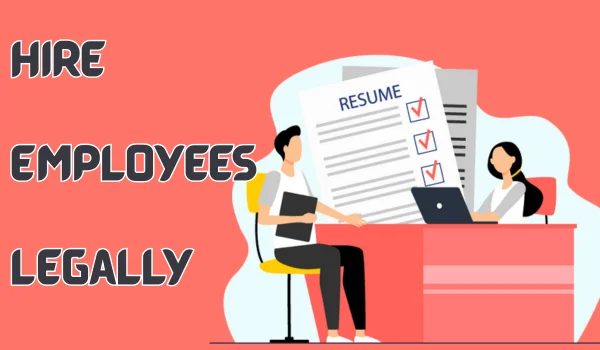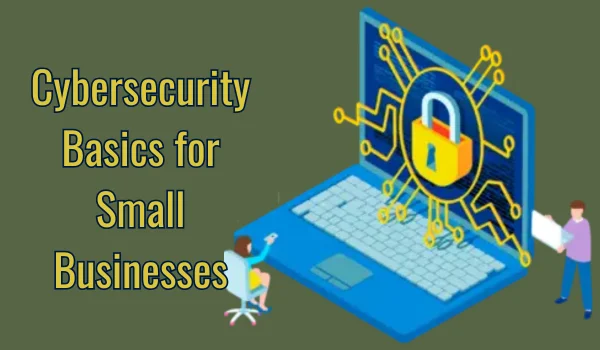
Starting a new business in the U.S. is exciting — but it also comes with a set of legal obligations you must meet. Failing to comply can mean penalties, lost protections, or even forced closure. This blog post walks you through the key legal requirements your new business should know, in a way that’s easy to understand yet grounded in expert/legal reality.
✅ Why legal compliance matters
- It helps protect your personal assets (e.g., your home, car) by using the right business entity and keeping your business-and-personal affairs separate.
- It sets you up correctly from the beginning: choosing the right structure, paying the right taxes, registering properly. Doing things the “right way” early saves you big headaches later.
- It builds credibility with banks, investors, suppliers, partners — and helps avoid regulatory trouble.
- It allows you to grow, change, hire, invest — with fewer surprises.
📝 Key Legal Requirements for a New Business

Here are the major legal steps you should be aware of. The exact details depend on your business type, state, industry — but most new businesses need to deal with all or most of these.
Choose your business structure
What legal form will your business take? Common options: sole proprietorship, partnership, limited liability company (LLC), corporation (C-corp or S-corp) etc.
Why it matters:
- Determines how you pay taxes, how liability works, how you raise capital.
- For example: an LLC or corporation separates your personal assets from business liability (if done properly).
- Different structures have different formalities, costs, tax implications.
Action point: Research your options, perhaps with a lawyer or accountant, decide what makes sense for you now — and for your planned growth path.
Register your business and name
Once you pick a structure and name, you usually must register with your state (and possibly county/city). The agency is often the Secretary of State or equivalent.
Key steps:
- Choose a business name that is available (not used by someone else) and complies with state naming rules (e.g., LLC must include “LLC” in many states).
- File your formation documents (Articles of Organization, Certificate of Incorporation, etc).
- If you operate under a different name (“Doing Business As” or DBA/trade name), you’ll often need to register that too.
- If you plan to operate in multiple states (e.g., you incorporate in one but sell/operate in others), you may need “foreign qualification” in other states.
Obtain required tax IDs
Federal: Most businesses (especially LLCs, corporations, partnerships) need an Employer Identification Number (EIN) from the Internal Revenue Service (IRS).
State/local: You may also need a state tax ID, sales tax registration, state employer taxes, depending on your business.
Why it matters: You’ll need these IDs to open a business bank account, hire employees, file taxes, comply with state/federal rules.
Business licenses & permits
Depending on your industry, location, and business activities, you’ll likely need certain licenses and/or permits.
Examples:
- A city business operation license.
- Seller’s permit if you sell goods (so you can collect sales tax).
- Health department permit if you prepare food.
- Professional license if you provide regulated services (lawyers, doctors, accountants).
- Zoning/building permits if your location or property usage changes.
Action point: Check with your state, county, city to find all applicable licences/permits for your business type & location.
Insurance & compliance with employment laws
Even small businesses must consider:
- General liability insurance (to protect against lawsuits for injury/property damage)
- Worker’s compensation insurance (if you have employees).
- Federal labour/employment laws: minimum wage, overtime, classification of employees vs contractors, workplace safety.
Action point: Understand your employment obligations; consider insurance appropriate to your risk and business type.
Ongoing compliance & registrations
Starting the business is just the beginning — you must maintain compliance.
Examples:
- File annual reports with the state (for LLCs/corps).
- Maintain a registered agent (for entities formed under state law) to receive legal/service-of-process documents.
- Report beneficial ownership information under the Corporate Transparency Act (CTA) if your business is subject to it.
- Keep business records separate (to maintain liability protection).
- Renew licenses/permits, monitor changes in laws applicable to your business.
Taxes — Federal, State, Local
Taxes are among the most important legal obligations. You must:
- File correct forms for your business entity type.
- Make estimated tax payments if required.
- Collect and remit sales tax when selling taxable goods/services (and understand “economic nexus” rules if you sell across states).
- Keep accurate records.
Action point: Engage an accountant familiar with your industry and state; set up bookkeeping/accounting system from the start.
Intellectual property and contracts
- Register your trademarks / domain names / copyrights if your brand is important and you want protection.
- Draft operating agreement (for LLCs) or shareholder agreement/ bylaws (for corporations).
- Have written contracts with suppliers, customers, employees (or independent contractors) — helps avoid disputes.
🧭 Quick Legal Checklist for New Businesses
Here’s a streamlined summary you can use as a checklist:
- Select business structure (LLC, corp, etc)
- Choose legal business name and check availability
- File formation documents with the state (if forming entity)
- Appoint registered agent (if required)
- Obtain EIN/Tax IDs (federal + state)
- Register for state/local taxes (sales tax, employer tax)
- Identify & obtain required licenses/permits (local, state, industry)
- Secure appropriate insurance (liability, workers comp, etc)
- Open business bank account, keep business/personal finances separate
- Set up accounting/bookkeeping
- Prepare contracts, operating agreement/bylaws, IP protection
- Understand and comply with labour/employment laws
- File ongoing state/corporate compliance (annual reports, BOI, etc)
- Monitor legal/regulatory changes (taxes, licensing, industry-specific)
❓ Frequently Asked Questions (FAQs)
Q1: Do I always have to incorporate (form an LLC or corporation) or can I operate as a sole proprietorship?
Yes, you can operate as a sole proprietorship (you and the business are legally the same), but you’ll have no liability protection for your personal assets. If you want personal protection, credibility, or growth-oriented business, forming an LLC or corporation is advisable.
Q2: What happens if I skip obtaining required licenses or permits?
Operating without the required licenses/permits can lead to fines, business closure, loss of insurance coverage, or legal exposure. It’s critical to identify all those applicable to your business, including local/industry rules.
Q3: Can I incorporate in one state but do business in another state?
Yes — many businesses incorporate in one state but operate in another. But you may have to “qualify” as a foreign entity in the other state (file forms, pay fees) and comply with that state’s taxes and regulations.
Q4: What is this “beneficial ownership” reporting and do I need to worry about it?
Under the Corporate Transparency Act (CTA), many new companies must report information about their owners/“beneficial owners” to the Financial Crimes Enforcement Network (FinCEN). Penalties may apply for non-compliance. It’s a relatively new requirement, so check whether your business qualifies.
Q5: How do I know if my business needs to collect sales tax?
This depends on your state law and whether your business has nexus (connection) in that state. If you sell taxable goods or services, you likely need to register for a sales tax permit and collect/ remit sales tax. The rules get more complex if you sell online across state lines (economic nexus).
🔍 Final Thoughts
Legal compliance can seem overwhelming, but think of it this way: you’re laying a strong foundation for your business. Taking the time to get the structure right, register properly, pay attention to taxes, licensing, employment law — will pay off by reducing risk and enabling growth.
If you’re about to launch your business in the U.S.:
- Start by consulting with a business attorney and accountant (especially for your industry and state).
- Use the checklist above to make sure you’ve covered the main items.
- Set up systems early (bookkeeping, contracts, business bank account) — don’t wait until things are chaotic.
- Stay informed: laws change, states update rules, licensing/permit requirements evolve.






